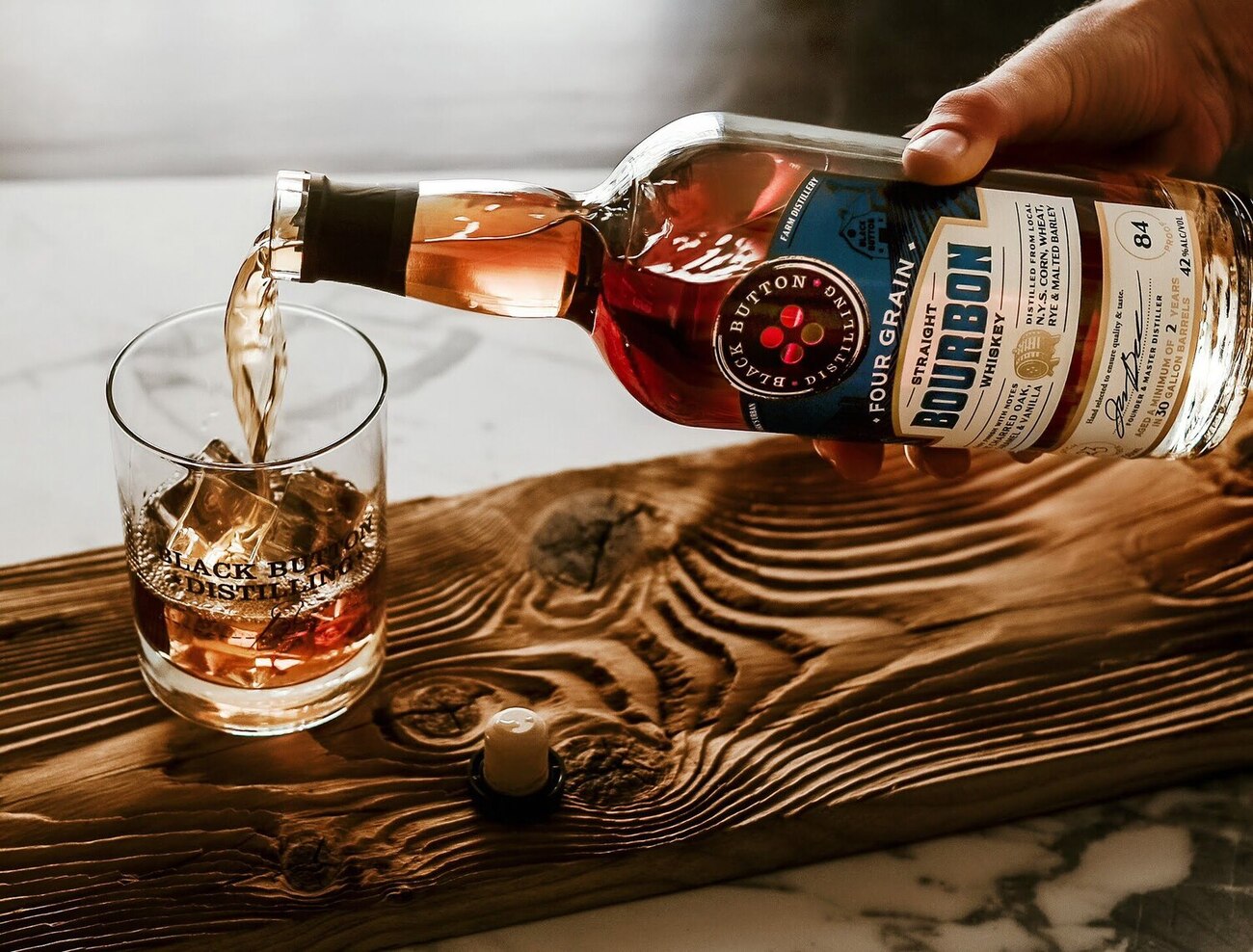

Articles
How To Store Bourbon After Opening
Modified: February 8, 2024
Discover the best ways to store bourbon after opening. Read our helpful articles for tips and techniques to preserve the flavor and quality of your favorite spirit.
(Many of the links in this article redirect to a specific reviewed product. Your purchase of these products through affiliate links helps to generate commission for Storables.com, at no extra cost. Learn more)
Introduction
Bourbon, a beloved American whiskey, is known for its rich flavors and smooth finish. As a bourbon enthusiast, you may find yourself with open bottles of this fine spirit in your collection. But have you ever wondered how to properly store bourbon after opening it?
Proper storage of bourbon is essential to maintain its quality and taste over time. Exposure to air, light, and fluctuating temperatures can all have a negative impact on the flavor and aroma of bourbon. To ensure that each sip of your precious bourbon is as enjoyable as the first, it’s crucial to follow the right storage practices.
In this article, we will explore the importance of storing bourbon correctly after opening it and provide you with useful tips to keep your bourbon in optimal condition. Whether you’re a seasoned bourbon connoisseur or just starting your collection, this guide will help you preserve the quality and flavors of your favorite spirits.
So, let’s dive into the world of bourbon storage and discover the secrets to keeping your open bottles of bourbon fresh and delightful!
Key Takeaways:
- Properly storing bourbon after opening is crucial to preserve its flavors and aromas. Sealing the bottle tightly, storing in a cool, dark place, and choosing the right container are key factors to consider.
- Protecting bourbon from light exposure is essential to maintain its quality. Storing in dark places, using UV-blocking glass containers, and avoiding sunlit areas help preserve the whiskey’s integrity.
Read more: How To Store Marshmallows After Opening
Why Proper Storage of Bourbon is Important
Properly storing bourbon after opening is crucial because it ensures that the flavors and aromas of this fine spirit are preserved, allowing you to enjoy the true essence of the whiskey for a longer period of time.
One of the primary reasons to store bourbon correctly is to prevent oxidation. When a bottle of bourbon is opened, it comes into contact with oxygen. Over time, exposure to oxygen can cause the flavors and aromas to become muted or even spoiled. By minimizing the contact between bourbon and air, you can slow down the oxidation process and preserve the whiskey’s original characteristics.
Another important aspect of proper bourbon storage is protecting it from extreme temperature fluctuations. Bourbon is sensitive to changes in temperature, as heat can accelerate the aging process and impact the whiskey’s flavors. High temperatures can also lead to the evaporation of alcohol, which can alter the balance and concentration of the bourbon. Storing bourbon in a cool and stable environment helps to maintain its integrity and prevent any undesirable changes.
Light exposure is also a factor to consider when storing bourbon. Ultraviolet (UV) rays from sunlight can break down the compounds in bourbon, leading to a deterioration of flavors and potentially causing the whiskey to become “lightstruck.” To avoid this, it is essential to keep bourbon bottles away from direct sunlight or any other sources of UV light. This will help maintain the whiskey’s original taste and ensure it remains enjoyable to drink.
The quality of the storage container also plays a significant role in preserving the bourbon’s flavors. Airtight containers, such as glass decanters or stainless steel flasks, are ideal for storing bourbon after opening. These containers prevent excessive exposure to air and minimize the risk of oxidation. Additionally, storing bourbon upright rather than on its side can further reduce the surface area exposed to air, helping to preserve the whiskey’s integrity.
In summary, proper storage of bourbon is important to prevent oxidation, protect the whiskey from temperature fluctuations, and shield it from light exposure. By following the right storage practices, you can ensure that each sip of your bourbon remains a delightful experience, with all the distinctive flavors and aromas intact.
Tips for Storing Bourbon After Opening
After opening a bottle of bourbon, there are several tips and techniques you can follow to store it properly and maintain its quality and flavor. Take a look at the following tips:
- Seal the Bottle: After pouring yourself a glass of bourbon, make sure to tightly seal the bottle with its original cork or invest in a high-quality bottle stopper. This will help minimize the contact with air and slow down the oxidation process.
- Store in a Cool, Dark Place: Find a storage spot away from direct sunlight and extreme temperature fluctuations. A cool, dark place like a cellar, liquor cabinet, or pantry is ideal for storing bourbon. Consistent room temperature is key to preserving the whiskey’s flavors and aromas.
- Minimize the Air Gap: If you have a large bottle of bourbon with only a small amount remaining, consider transferring the whiskey to a smaller container. This reduces the air gap, minimizing the amount of oxygen in contact with the remaining bourbon.
- Use Airtight Containers: If you prefer to decant your bourbon or have opened a limited edition bottle, consider transferring the whiskey to a airtight glass decanter or stainless steel flask. These containers will limit air exposure and preserve the bourbon’s quality.
- Avoid Temperature Extremes: Keep your bourbon away from areas with excessive heat or cold, such as near a heater or in the freezer. Extreme temperatures can alter the flavor and consistency of the whiskey, so maintaining a stable temperature is important.
- Don’t Store Near Strong Odors: Bourbon has a delicate flavor profile that can be affected by strong odors. Avoid storing the bottle near spices, chemicals, or any other pungent substances that could potentially taint the whiskey’s aroma and taste.
- Keep Bottles Upright: Storing bourbon bottles upright reduces the surface area exposed to air, minimizing oxidation. This is especially important if you have partially filled bottles.
- Label and Date: If you have multiple bottles of bourbon open, label them with the date of opening. This will help you keep track of how long the whiskey has been open and determine its freshness.
By following these tips, you can ensure that your beloved bourbon remains fresh and enjoyable, allowing you to savor its distinct flavors and aromas sip after sip.
Choosing the Right Storage Container
When it comes to storing bourbon after opening, choosing the right storage container is essential to maintain the quality and integrity of the whiskey. Here are some factors to consider when selecting a storage container:
- Glass Decanter: A glass decanter is a popular choice for storing bourbon. It not only adds an aesthetic appeal to your collection but also provides an airtight seal when properly closed. Opt for a decanter with a tight-fitting stopper or lid to minimize air exposure.
- Stainless Steel Flask: If you prefer a more portable option, a stainless steel flask is an excellent choice. It is durable, lightweight, and helps protect the bourbon from external elements. Look for flasks with a secure cap that will prevent leaks and maintain the whiskey’s freshness.
- Dense Ceramic Container: Ceramic containers, such as crocks or pottery jars, can also be used to store bourbon. Make sure the container has a tight-fitting lid to prevent air from entering. Additionally, ceramic provides insulation, helping to maintain a consistent temperature.
- Airtight Glass Bottles: If you prefer to keep the bourbon in its original bottle, ensure that the cap or cork provides an airtight seal. Look for bottles with airtight lids that will minimize air contact and reduce the risk of oxidation.
- Dark-Colored Bottles: While not directly related to the storage container itself, choosing dark-colored bottles can help protect the bourbon from light exposure. Dark glass bottles, such as amber or dark green, are less permeable to UV rays, helping to preserve the quality and flavors of the whiskey.
When selecting a storage container, it’s important to consider the size as well. Choose a container that is appropriate for the amount of bourbon remaining. An oversized container will leave excess air space, while an undersized one may not provide proper protection.
Remember, regardless of the storage container you choose, make sure it provides an airtight seal and is stored in a cool, dark place. This will help maintain the quality of the bourbon and ensure that each pour is as enjoyable as the first.
Avoiding Common Mistakes
Properly storing bourbon after opening requires attention to detail and an understanding of potential mistakes that can compromise the quality and flavor of the whiskey. Here are some common mistakes to avoid:
- Leaving the Bottle Unsealed: Failing to seal the bottle tightly after pouring a glass of bourbon is a common mistake. Open bottles should be immediately resealed with the original cork or a high-quality bottle stopper to prevent excessive air exposure.
- Storing in a Warm Environment: Heat can have a detrimental effect on bourbon, speeding up the aging process and altering its flavors. Avoid storing bourbon in areas with high temperatures, such as near a heater or in direct sunlight.
- Storing in the Refrigerator or Freezer: While it may seem logical to refrigerate or freeze opened bourbon, this is not recommended. The cold temperatures can dull the flavors and change the consistency of the whiskey. Bourbon is best stored at a consistent room temperature.
- Storing Near Strong Odors: Bourbon is highly susceptible to absorbing odors from its surroundings. Avoid storing the bottle near strong-smelling substances such as spices, cleaning products, or perfumes, as they can alter the whiskey’s aroma and taste.
- Failing to Protect from Light: Exposure to direct sunlight or UV rays can cause the breakdown of compounds in bourbon, leading to a deterioration of flavors and overall quality. Store bourbon away from windows and any other sources of light to protect it from light exposure.
- Ignoring the Air Gap: When a bottle of bourbon is only partially filled, a larger air gap is created. This increased surface area exposed to air can lead to quicker oxidation. Consider transferring the bourbon to a smaller container to minimize the air gap.
By avoiding these common mistakes and following proper storage techniques, you can ensure that your bourbon remains in optimal condition, allowing you to enjoy its flavors and aromas for an extended period of time.
Store bourbon in a cool, dark place away from direct sunlight and extreme temperatures. Keep the bottle tightly sealed to prevent oxidation and maintain the flavor. Consider transferring the bourbon to a smaller bottle to minimize air exposure.
Read more: How To Store Prosecco After Opening
Proper Temperature and Humidity
Maintaining the proper temperature and humidity levels is crucial for storing bourbon after opening. Both factors can significantly impact the quality and longevity of the whiskey. Here’s what you need to know:
Temperature: Bourbon should be stored at a consistent room temperature, ideally between 15 to 20 degrees Celsius (59 to 68 degrees Fahrenheit). Extreme temperatures can compromise the flavors and aromas of the whiskey. Avoid storing bourbon near heat sources, such as radiators or stoves, as this can cause fluctuations in temperature.
If the temperature in your storage area fluctuates, it can lead to expansion and contraction of the bourbon inside the bottle, potentially affecting the seal and causing leakage. Additionally, rapid temperature changes can accelerate the aging process of the whiskey, resulting in flavor inconsistencies. It is crucial to keep the storage environment as stable as possible to ensure the integrity and quality of the bourbon.
Humidity: Maintaining the right humidity level is also important for bourbon storage. Aim for a relative humidity (RH) level of around 55% to 75%. Excessive humidity can lead to mold growth, label damage, and deterioration of the cork seal. On the other hand, low humidity can cause the cork to dry out and let in unwanted air, accelerating oxidation.
To prevent fluctuations in humidity, store bourbon bottles upright. Storing them on their sides can cause the cork to dry out or become damaged, compromising the seal and allowing air to enter the bottle. Additionally, storing the bottles upright reduces the potential for humid air to come into contact with the bourbon, helping to maintain its quality over time.
To monitor and regulate temperature and humidity levels, you can use a hygrometer and thermometer in your storage area. These devices will provide accurate readings, allowing you to make adjustments if necessary.
By maintaining proper temperature and humidity levels, you can help preserve the quality and flavors of your bourbon, ensuring that each sip is as delightful as the first. Remember to store in a cool, stable environment and keep an eye on the humidity levels to extend the lifespan of your opened bottles of bourbon.
Protecting Bourbon from Light Exposure
Light exposure can have a detrimental effect on the quality and flavors of bourbon. Ultraviolet (UV) rays from sunlight can break down compounds in the whiskey, leading to a loss of flavor and potential off-notes. Therefore, it’s important to take steps to protect your bourbon from light exposure. Here’s how:
Store in a Dark Place: Find a storage location for your bourbon that is away from direct sunlight and any other sources of UV light. A cool, dark place like a cellar, liquor cabinet, or pantry is ideal. This will help prevent light from compromising the integrity and flavor of the whiskey.
Choose Dark-Colored Bottles: Consider purchasing bourbon that comes in dark-colored bottles, such as amber or dark green glass. These dark glass containers are more effective in blocking out UV rays compared to clear or light-colored glass bottles. Choosing bourbon in dark bottles provides an added layer of protection from light exposure.
Use UV-Blocking Glass Containers: If you prefer to store your bourbon in a decanter or transfer it to a different container after opening, opt for containers made with UV-blocking glass. These special types of glass provide added protection against UV rays, preserving the freshness and quality of the bourbon for a longer period of time.
Avoid Displaying in Sunlit Areas: If you enjoy showcasing your bourbon collection, be mindful of where you display it. Avoid placing the bottles in areas that receive direct sunlight or are exposed to bright artificial light for extended periods of time. Choose a display spot that is away from windows or any light source that could potentially harm the whiskey.
Wrap the Bottle: If you have a prized bottle of bourbon that you want to protect from light exposure, consider wrapping it with a cloth or storing it in a gift box or sleeve. This additional layer of protection can help shield the whiskey from UV rays and maintain its quality over time.
Keep Labels Intact: While not directly related to light exposure, keeping the labels on bourbon bottles intact is essential for preserving their value and integrity. Sunlight can cause labels to fade or peel off over time. Protect the labels by storing the bottles in a dark environment and handling them with care.
By taking these steps to protect your bourbon from light exposure, you can ensure that the flavors, aromas, and overall quality of the whiskey remain intact. Shielding your bourbon from light will result in a more enjoyable drinking experience and help to maintain the value of your prized bottles.
How Long Can You Store Opened Bourbon?
The shelf life of opened bourbon can vary depending on several factors, including the storage conditions, alcohol content, and the individual preferences of the drinker. While bourbon does not spoil or become unsafe to consume over time, its quality and flavor can gradually change.
In general, properly stored opened bourbon can maintain its quality for up to 1 to 2 years. However, it is important to note that this is a general guideline, and some bourbons may remain enjoyable for even longer periods.
The key to prolonging the lifespan of opened bourbon lies in minimizing the exposure to air, light, and temperature fluctuations. Keep the following tips in mind:
- Seal the Bottle Tightly: Ensure that the bottle is tightly sealed with its original cork or a high-quality bottle stopper after each use. Limiting the contact with air will help slow down the oxidation process.
- Store in a Cool, Dark Place: Find a storage spot away from direct sunlight and extreme temperatures. A cool, dark place like a cellar, liquor cabinet, or pantry is ideal for maintaining the quality of the bourbon.
- Keep the Bottle Upright: Storing bourbon bottles upright rather than on their side will minimize the surface area exposed to air, reducing the rate of oxidation.
- Protect from Light: Ultraviolet (UV) rays from sunlight can degrade the flavors and composition of bourbon. Store the bottles away from light sources to preserve their quality.
It’s important to note that bourbon may undergo some subtle changes in flavor and aroma over time, even when stored properly. This can be attributed to the interaction between the whiskey and the air inside the bottle. These changes are normal and are part of the aging process.
If you notice any significant changes in taste or aroma, such as a dull or off-putting flavor profile, it may be an indication that the bourbon has passed its prime. It’s always a good idea to trust your senses and personal preferences when determining if a bourbon is still enjoyable to drink.
Remember, the storage conditions and individual characteristics of each bourbon can impact its lifespan. Factors such as the alcohol content, age, and quality of the bourbon can all influence how long it can be stored while maintaining its quality.
To make the most of your opened bourbon, aim to consume it within 1 to 2 years while ensuring proper storage conditions. By doing so, you can continue to savor the distinctive flavors and aromas that make bourbon a beloved spirit.
Frequently Asked Questions
1. Can bourbon go bad?
No, bourbon does not go bad or spoil in the same way that perishable foods do. However, its quality and flavor can deteriorate over time if not stored properly. To maintain the freshness and integrity of bourbon, it is important to follow proper storage practices.
2. Should bourbon be refrigerated after opening?
No, bourbon should not be refrigerated after opening. The cold temperatures can dull the flavors and affect the consistency of the whiskey. Bourbon is best stored at a consistent room temperature in a cool, dark place.
3. What is the best temperature to store bourbon?
The best temperature to store bourbon is between 15 to 20 degrees Celsius (59 to 68 degrees Fahrenheit). Avoid storing bourbon in areas with extreme temperatures, as this can affect the flavor and quality of the whiskey.
4. Can I store bourbon in a decanter after opening?
Yes, you can transfer bourbon to a decanter after opening, especially if you prefer a more visually appealing presentation. However, ensure that the decanter provides an airtight seal and is stored in a cool, dark place to maintain the whiskey’s quality.
5. What are the signs that bourbon has gone bad?
Bourbon doesn’t go bad in the same way that perishable foods do. However, if you notice significant changes in taste, such as a dull or off-putting flavor profile, it may be an indication that the bourbon has passed its prime. Trust your senses and personal preferences when determining if a bourbon is still enjoyable to drink.
6. Does bourbon age once opened?
Unlike wine, bourbon does not age once it is bottled and sealed. However, opened bourbon may undergo subtle changes in flavor and aroma over time due to oxidation. These changes are part of the aging process and are normal.
7. Can bourbon be stored vertically?
Yes, it is recommended to store bourbon bottles upright rather than on their side. Storing them vertically reduces the surface area exposed to air, thus minimizing oxidation and helping to maintain the quality of the whiskey.
8. How long can you store opened bourbon?
Properly stored and sealed, opened bourbon can maintain its quality for up to 1 to 2 years. However, this timeframe can vary depending on factors such as storage conditions, alcohol content, and personal preferences.
9. Can I consume bourbon past its shelf life?
Yes, you can consume bourbon past its shelf life, but the flavor and quality may have diminished. If the bourbon still tastes enjoyable to you, there is no safety concern in consuming it. Trust your palate to determine if the whiskey is still to your liking.
10. Can I mix different bourbons together when storing them?
Yes, you can mix different bourbons together in one container for storage, but keep in mind that combining different bourbons can alter their individual flavors and characteristics. If you do mix them, ensure that the storage container provides an airtight seal to maintain the quality of the blended whiskey.
It’s always best to store bourbon in a cool, dark place with limited exposure to air and light to maximize its longevity and quality.
Read more: How To Store Tahini After Opening
Conclusion
Properly storing bourbon after opening is essential to preserving its quality, flavor, and enjoyment. By following the right storage practices, you can ensure that your favorite bottles of bourbon remain fresh and delightful for an extended period of time.
Sealing the bottle tightly, storing it in a cool, dark place away from temperature fluctuations and light exposure, and choosing the right storage container are all key factors to consider. Avoiding common mistakes such as leaving the bottle unsealed, storing in extreme temperatures, and neglecting the air gap can help maintain the integrity of the bourbon.
Proper temperature and humidity play an important role in bourbon storage. Keeping the bourbon at a consistent room temperature and monitoring the humidity levels can help preserve the flavors and prevent any undesirable changes to the whiskey.
Protecting bourbon from light exposure is crucial, as UV rays can degrade the quality and composition of the whiskey. Storing bourbon in dark places, using dark-colored bottles or UV-blocking glass containers, and avoiding display in sunlit areas are effective ways to shield the bourbon from harmful light exposure.
While bourbon doesn’t spoil like perishable foods, its quality and flavor can gradually change over time. Properly stored bourbon can maintain its quality for up to 1 to 2 years. However, individual preferences and storage conditions can affect the lifespan of opened bourbon.
By understanding these storage techniques, avoiding common mistakes, and following proper practices, you can ensure that each sip of your precious bourbon is as enjoyable as the first. So, raise a glass and savor the flavors and aromas of your well-preserved bourbon collection.
Frequently Asked Questions about How To Store Bourbon After Opening
Was this page helpful?
At Storables.com, we guarantee accurate and reliable information. Our content, validated by Expert Board Contributors, is crafted following stringent Editorial Policies. We're committed to providing you with well-researched, expert-backed insights for all your informational needs.
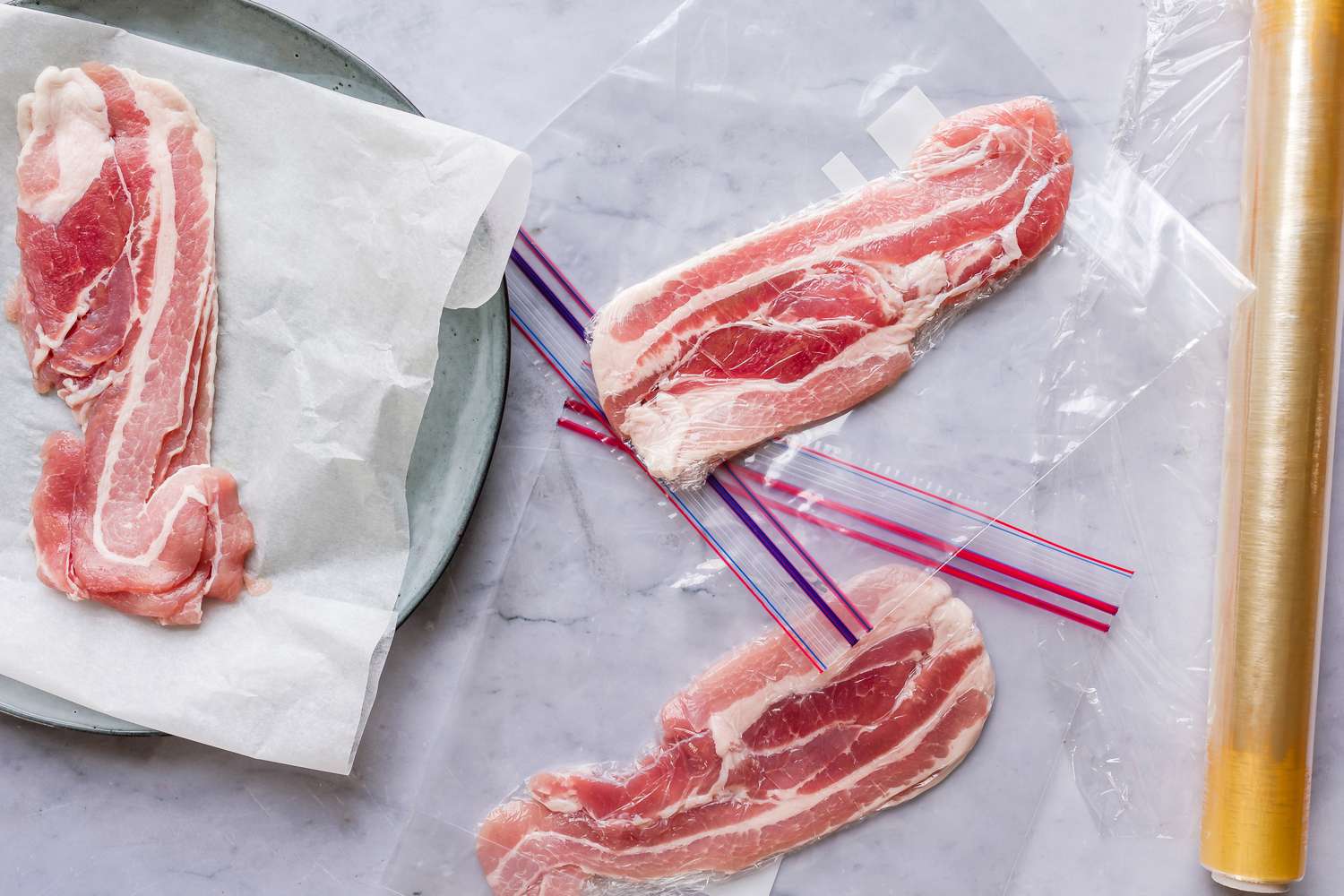
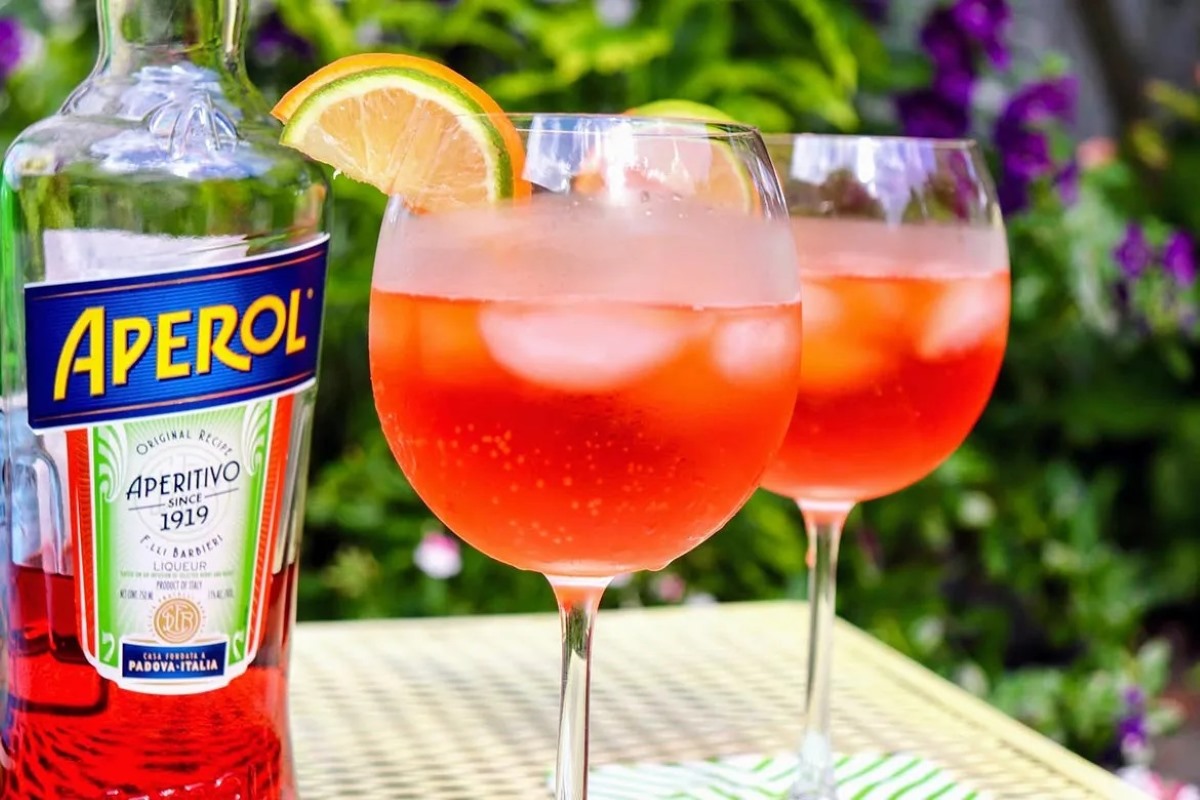
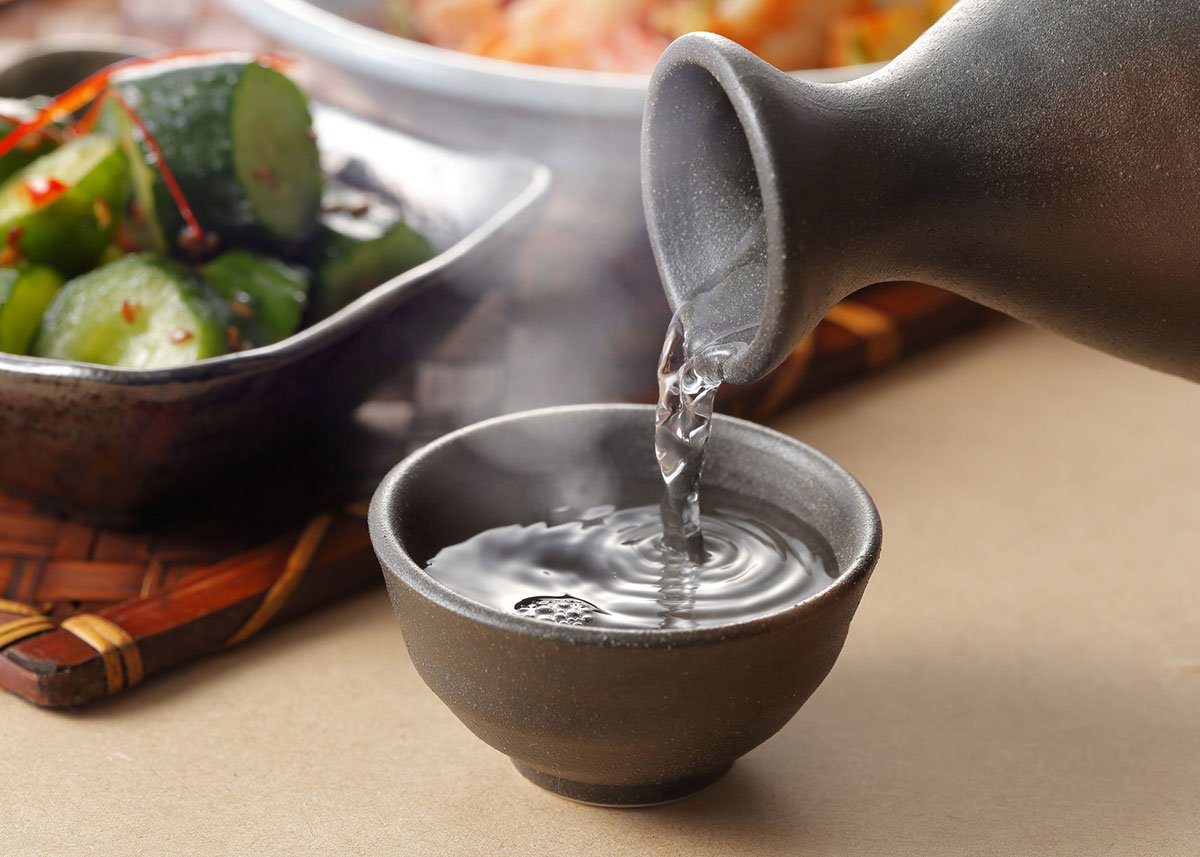
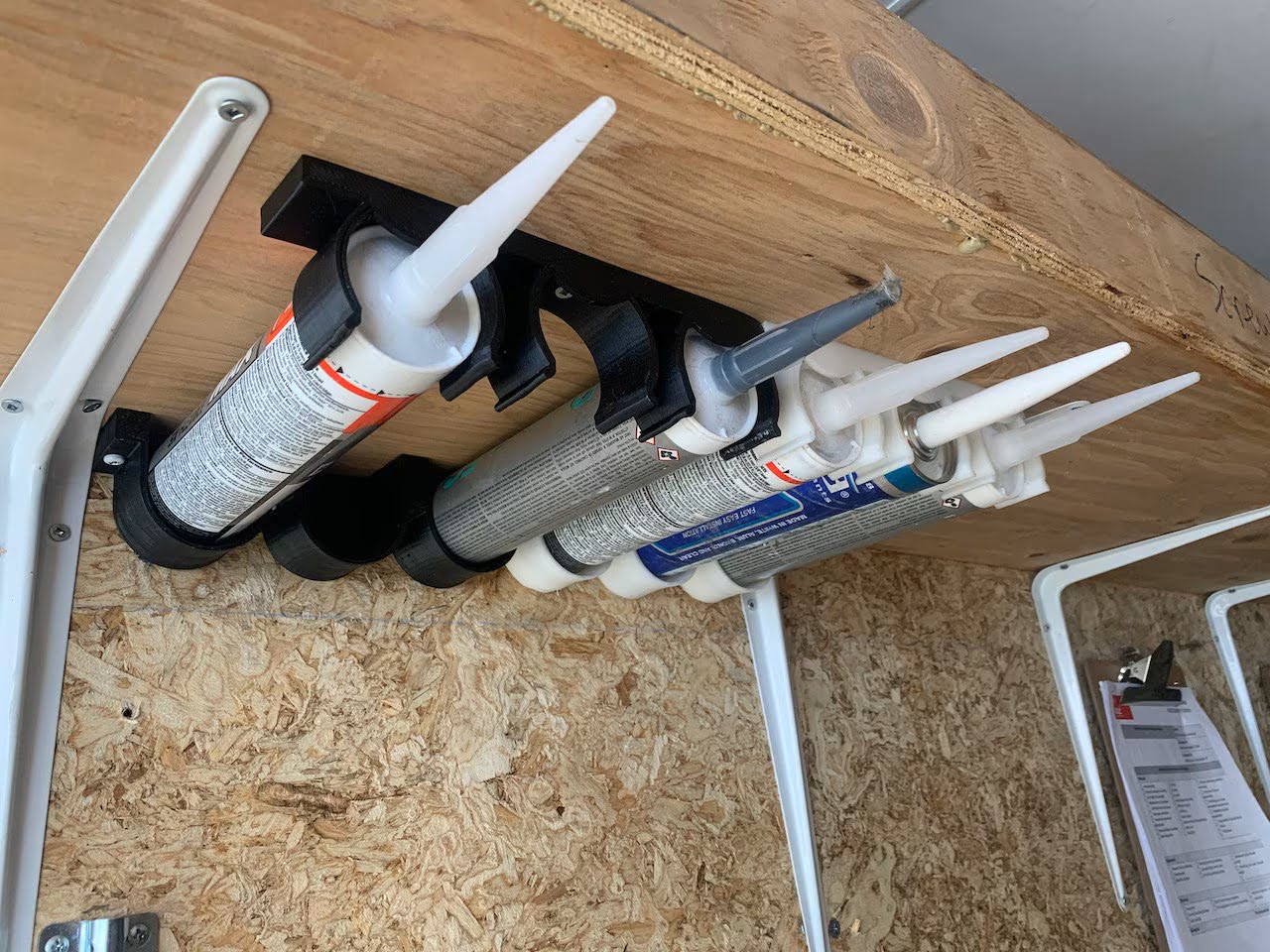
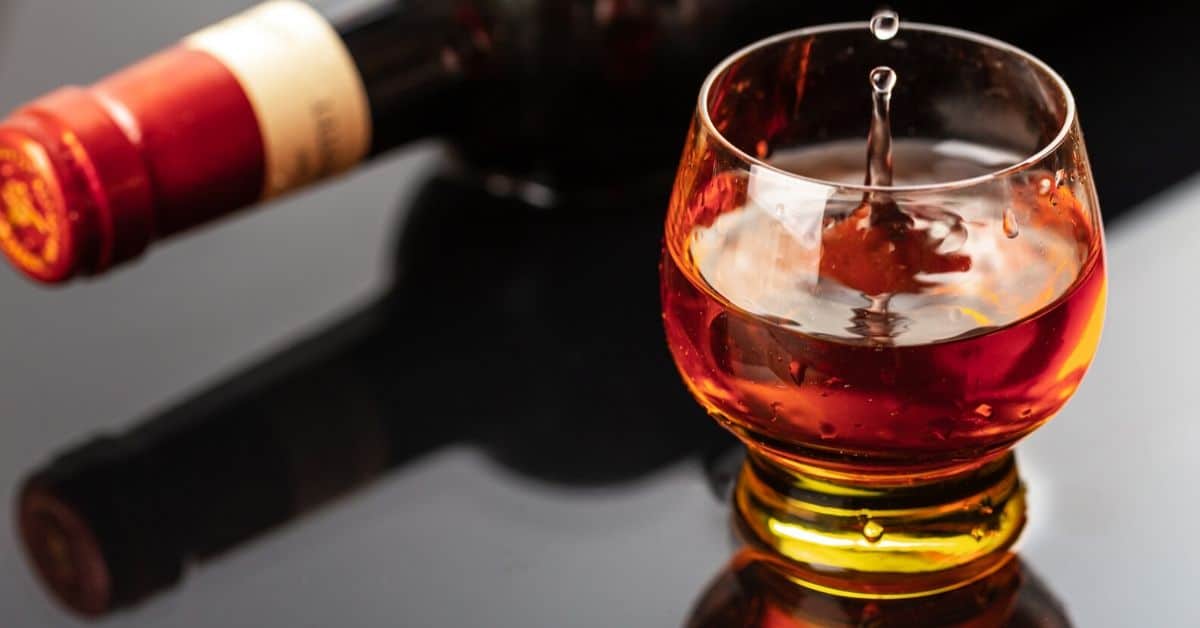
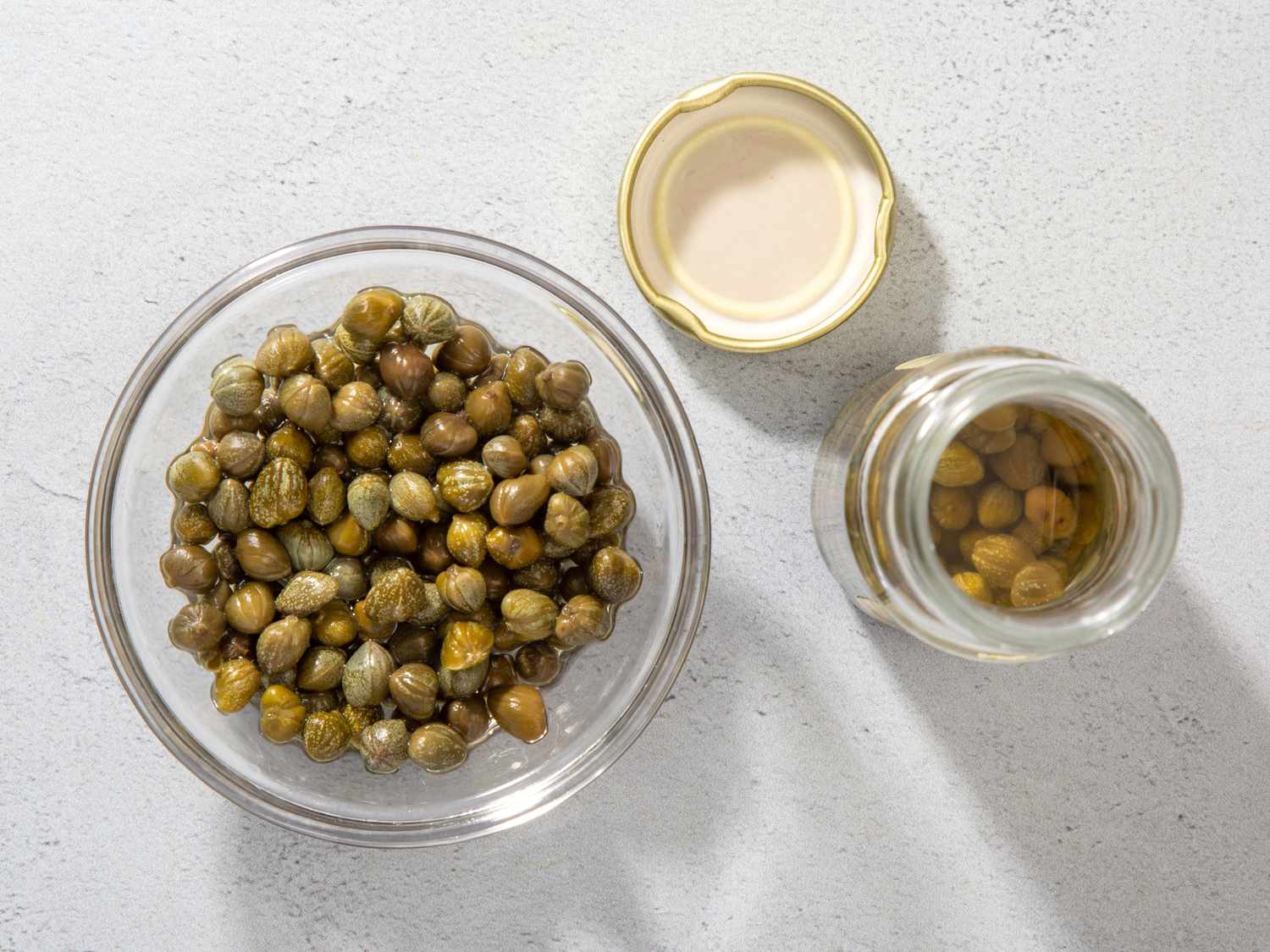
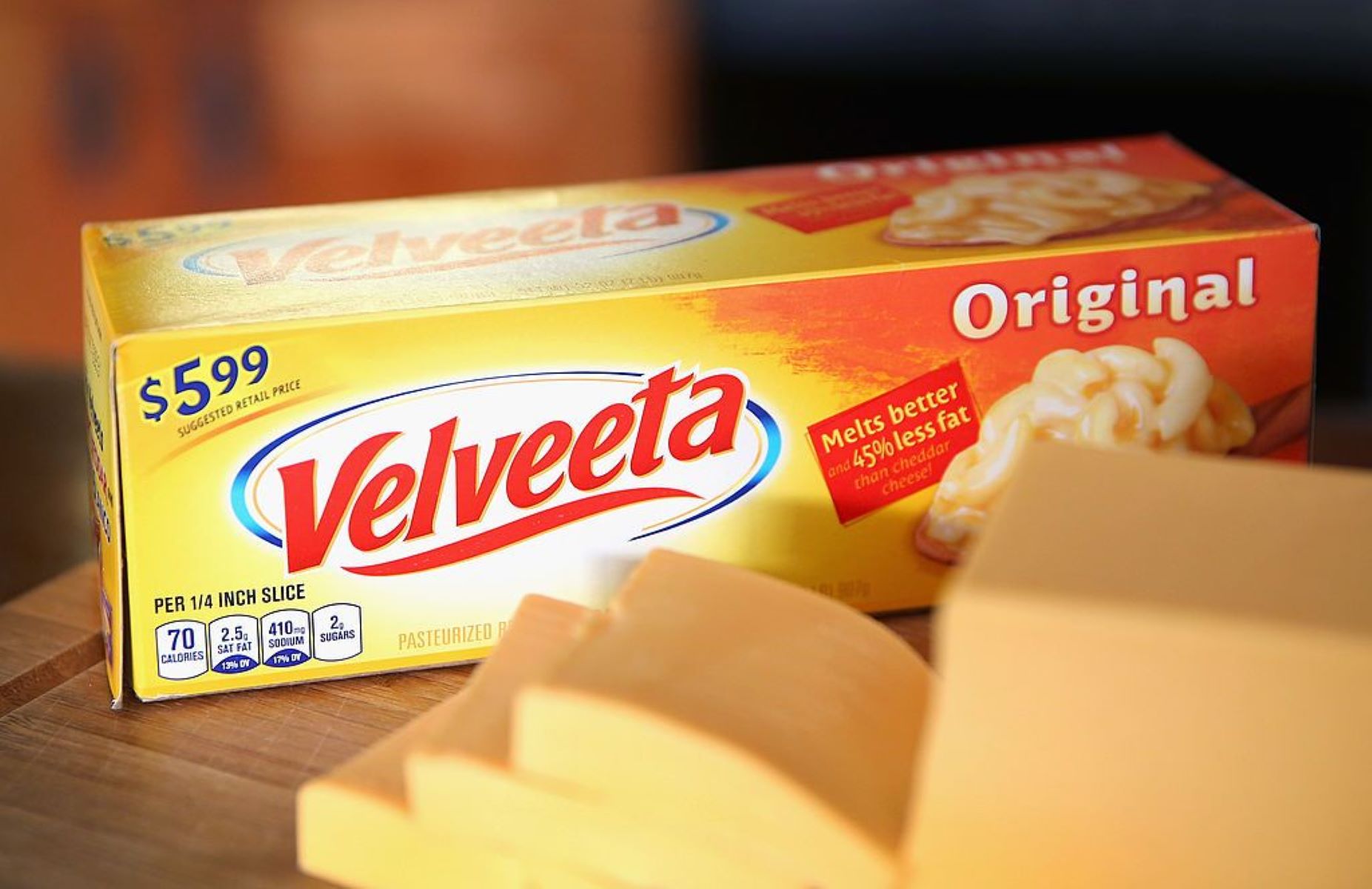
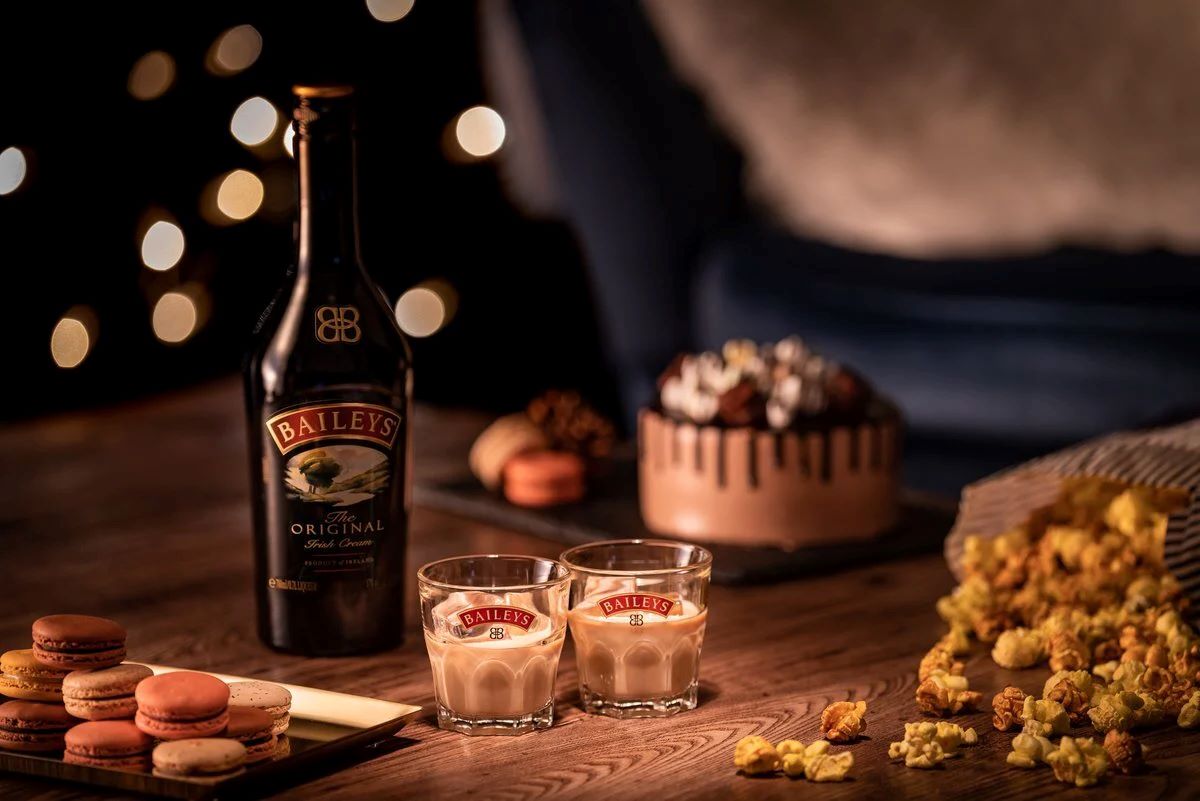
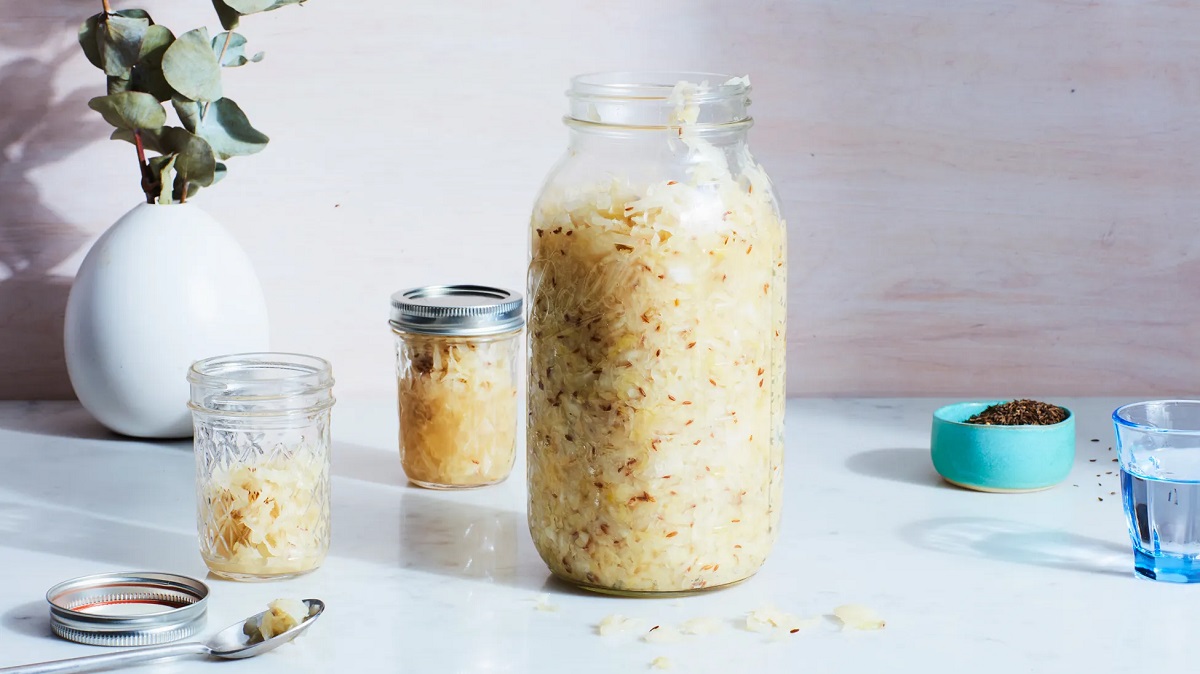
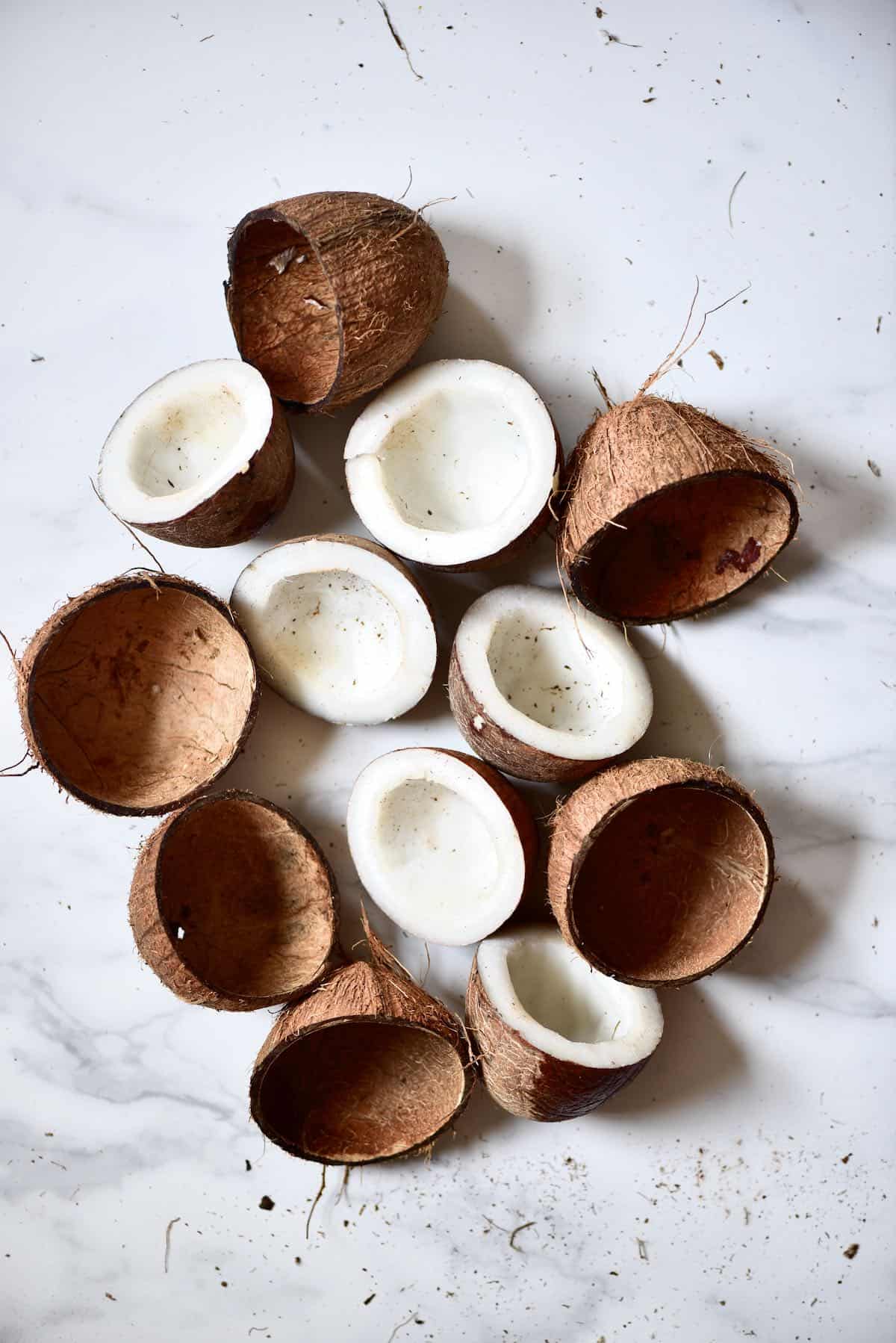
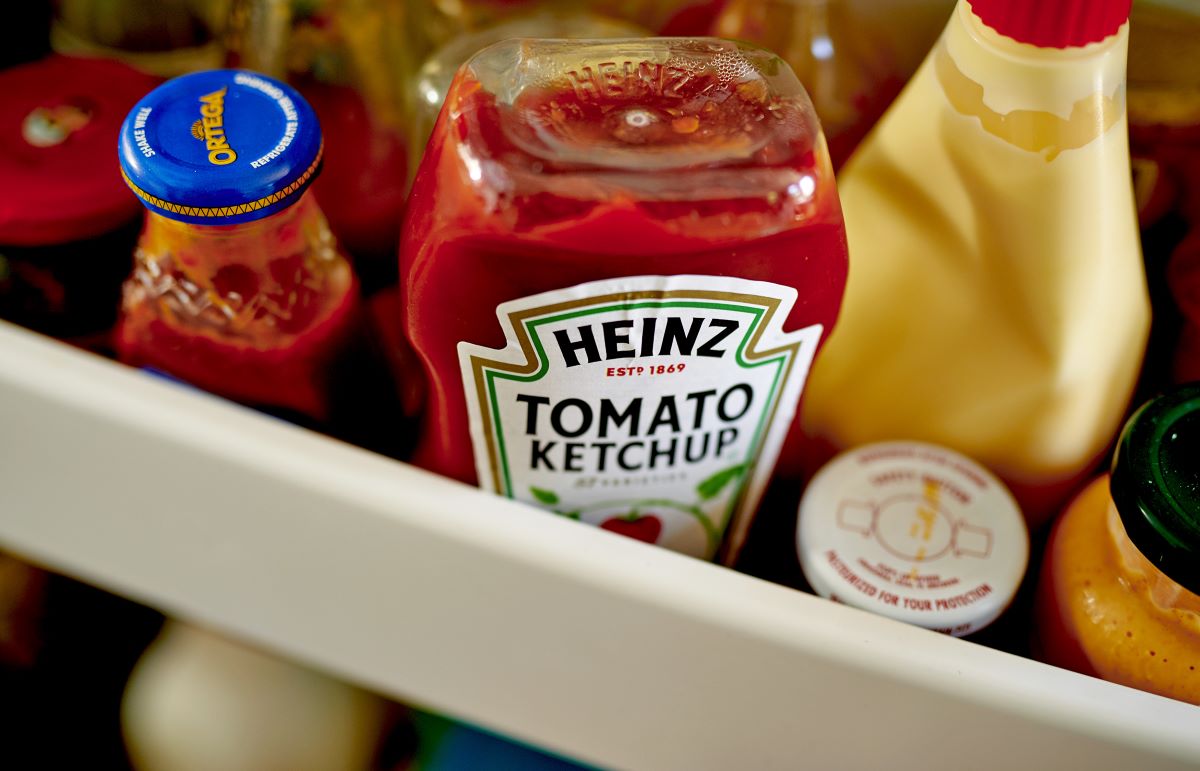
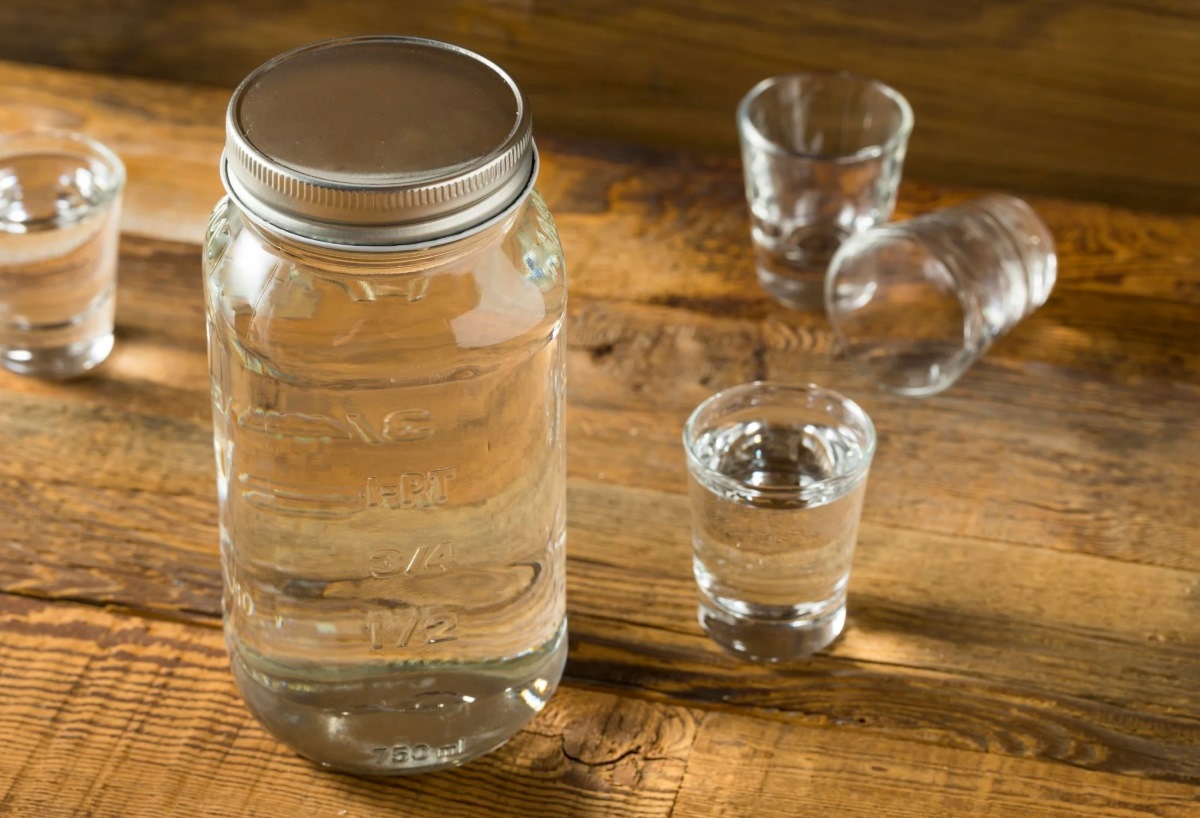
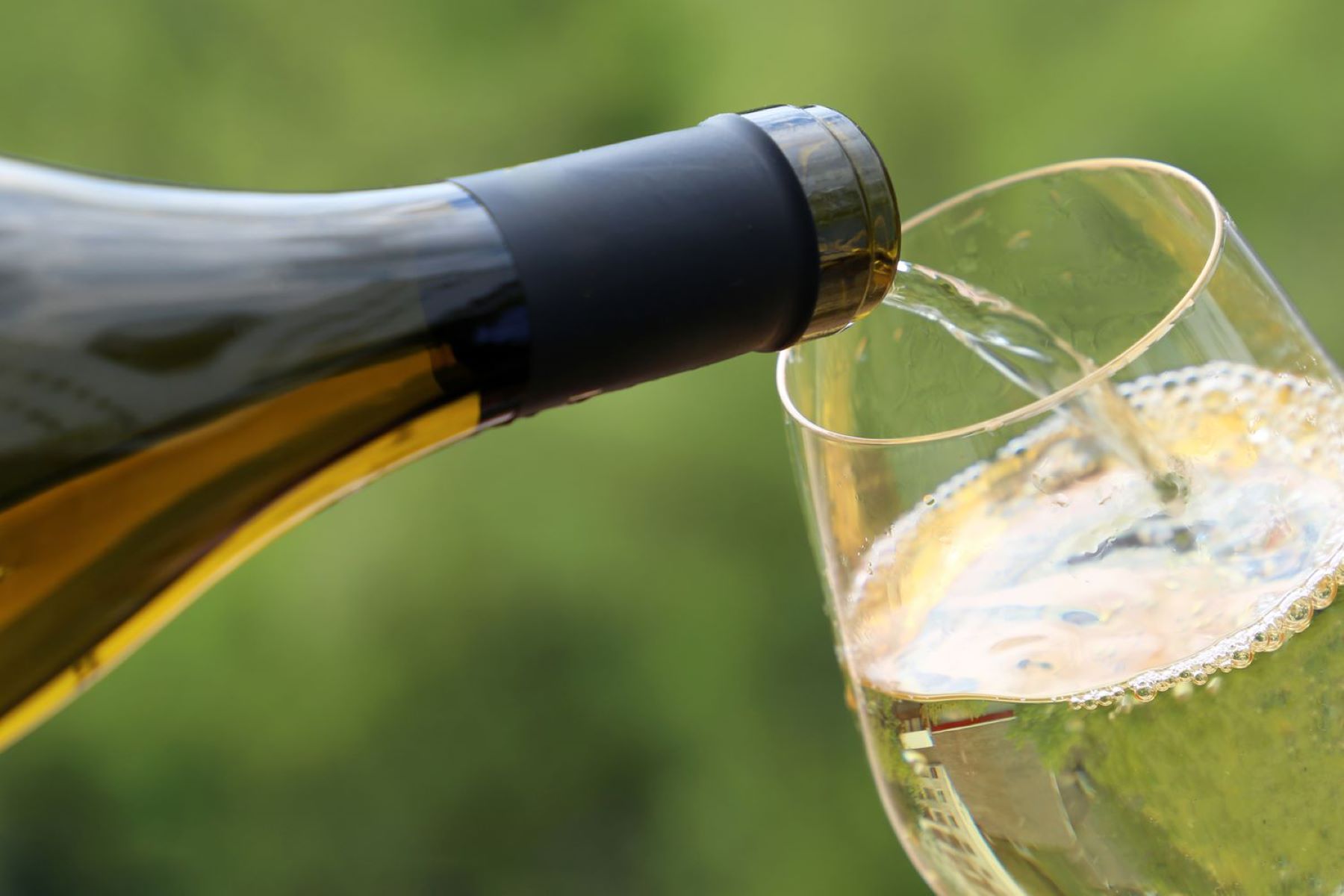

0 thoughts on “How To Store Bourbon After Opening”